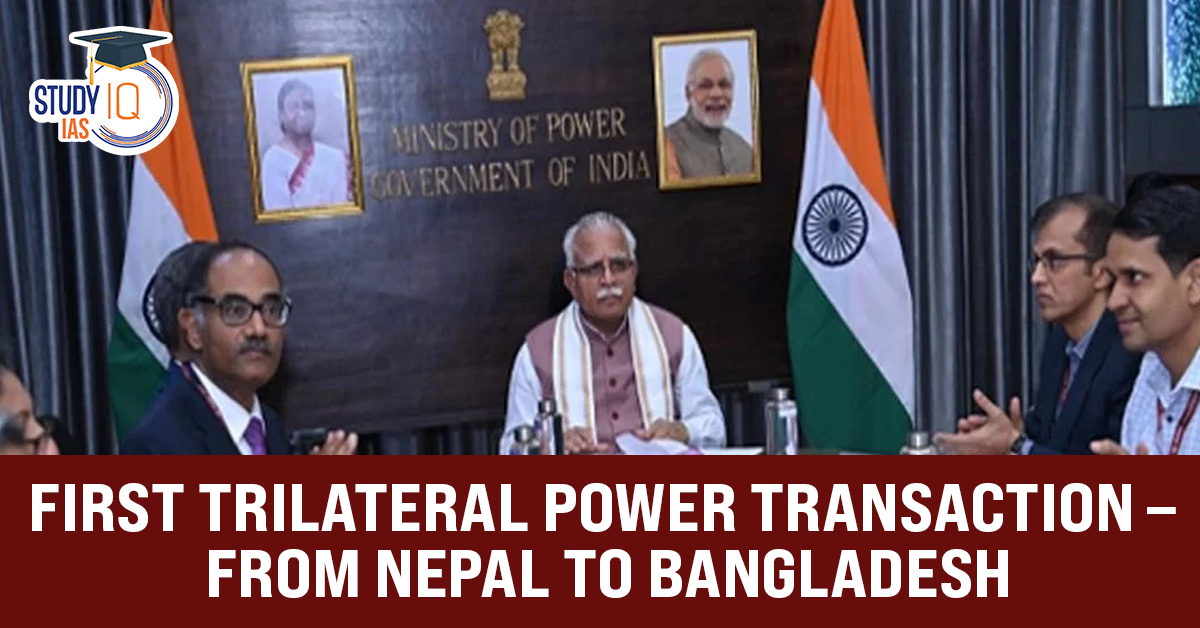Table of Contents
- India, Nepal, and Bangladesh have inaugurated their first trilateral power transaction, signaling a significant step towards regional energy cooperation in South Asia.
- Under this agreement, Nepal will export up to 40 MW of electricity to Bangladesh using India’s power grid as a transmission pathway.
Key Highlights
- Nepal as a Power Exporter:
- Nepal, with its vast hydropower potential, has taken on the role of a renewable energy provider in the region.
- The electricity being exported is primarily derived from Nepal’s hydropower projects, making it a clean and sustainable energy source.
- Bangladesh’s Energy Needs:
- Bangladesh is experiencing growing energy demands due to rapid industrialization and population growth.
- The imported power from Nepal will help diversify its energy sources and reduce its dependency on fossil fuels.
- India’s Role as a Conduit:
- India’s extensive power grid infrastructure is being used to facilitate the transaction.
- This marks a key example of regional connectivity where India serves as a bridge for energy trade between neighboring nations.
Significance
- Strengthening Regional Cooperation:
- The transaction fosters collaboration between the three countries, promoting economic integration in South Asia.
- It aligns with the vision of the SAARC Energy Framework to ensure energy security in the region.
- Environmental Benefits:
- The use of hydropower reduces reliance on fossil fuels, contributing to climate change mitigation efforts.
- It underscores the importance of sustainable energy solutions in meeting global environmental goals.
- Economic Gains:
- Nepal benefits from revenue generation through power exports.
- Bangladesh gains access to affordable, clean energy to fuel its development.
- India strengthens its strategic position as a regional energy hub.
- Infrastructure Development:
- Encourages the development of cross-border transmission lines and other infrastructure necessary for regional energy trade.
- Enhances grid reliability and efficiency in the participating nations.
Challenges
-
- Grid Synchronization: Ensuring the seamless integration of power systems across countries.
- Geopolitical Concerns: Managing political sensitivities related to shared resources.
- Dependability: Maintaining reliable power supply and addressing disruptions.
Way Forward
-
- Strengthening institutional mechanisms to address technical and policy challenges.
- Expanding the scope of regional energy trade to include more countries and larger capacities.
- Investing in advanced grid technologies to improve cross-border power transmission efficiency.


 Why India Needs Its Own Economic Model?
Why India Needs Its Own Economic Model?
 Challenges in India’s Airline Sector: ...
Challenges in India’s Airline Sector: ...
 Forest Conservation Act, 1980: Objective...
Forest Conservation Act, 1980: Objective...

























